Calvin has confirmed a partnership with the ALL IN Campus Democracy Organization — a non-partisan group that provides college campuses with tools to increase student voting and democratic engagement.
Calvin joined thanks to John Witte, dean of students, who came across the organization’s information in an email. Two factors — the upcoming local election, and Calvin’s results in a state-wide evaluation of what other colleges and universities were doing to promote citizenship and voting — contributed to his interest in ALL IN.
The organization, which thus far has partnered with nearly 1,000 campuses, supports a network of higher education institutions in order to help create “an electorate that mirrors our country’s makeup and in which college students are democratically engaged on an ongoing basis, during and between elections, and not just at the polls,” according to their website. Creating an informed electorate of student voters would then, they hope, lead to a more “engaged and inclusive democracy.”
This mission fits squarely with Calvin’s educational framework, Witte told Chimes. “Citizenship is one of the four things that we say are important to students as they learn here, as they leave here,” he said, and after seeing ALL IN’s material, “that just registered in my mind; we could do more to help students just be aware of — you know — when elections are, how to register to vote, maybe where to vote if they’re local, or how to get information about absentee ballots, all that kind of thing.”
ALL IN will help to make that information accessible, Witte said, through maintaining a Calvin-branded portal, accessed through a link or a QR code, in which students can type in their home address and get all the information they would need to register to vote, request absentee ballots, etc. “A student can just get all the information they need in one spot,” Witte told Chimes.
The planning is in the early stages yet, but by partnering with the organization, Calvin (and any other organization who joined) has committed to “convening a nonpartisan campus-wide working group that includes members from academic affairs, student affairs, the student body, and any other relevant stakeholders,” according to ALL IN. Witte imagines this group at Calvin potentially being made up of a number of departmental sponsors, including the department of politics and economics, Student Senate and both college party chapters.
The other criteria is that of “developing and implementing a nonpartisan data-driven action plan to improve civic learning, political engagement, and voter participation,” according to the ALL IN website.
Voting is an “important civic duty,” according to Mark Hessler, political science professor and director of Calvin’s Masters of Public Administration program, and so “students need to make sure to take the time to do it …it’s where you get to have your individual say. That’s what makes our country great, is the ability to get out there, vote, vote and support your candidates.”
In the 2020 election, 66% of college students voted, which was comparable to the national rate, according to the Institute for Democracy and Higher Education.
Voting isn’t the only way to be civically engaged, though, according to Hessler. Other options include volunteering for local governance boards, like the parks and recreation board or the zoning board. These local government groups are often looking to hear from young people. Becoming involved in your local party groups is important to stay engaged in government at the state and federal level as well, Hessler told Chimes.




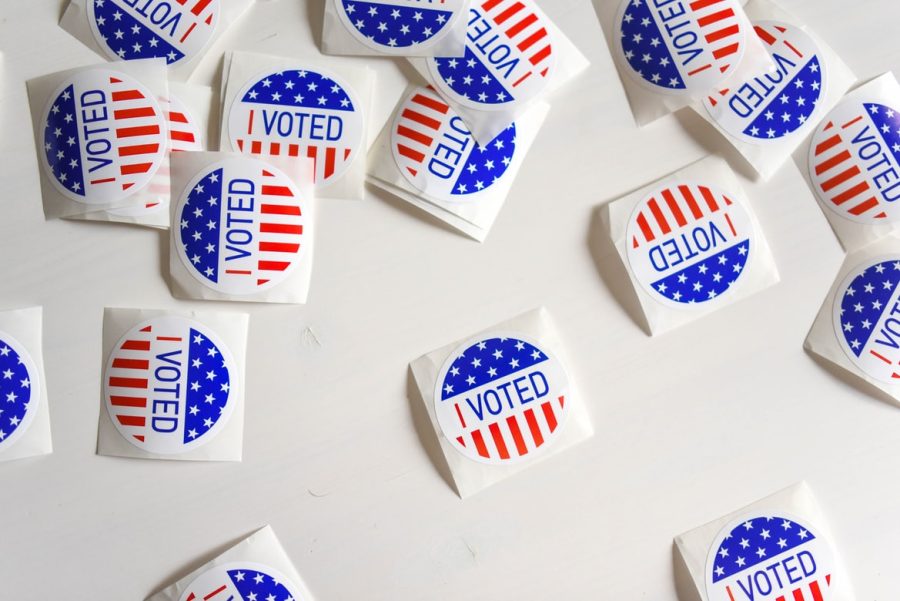

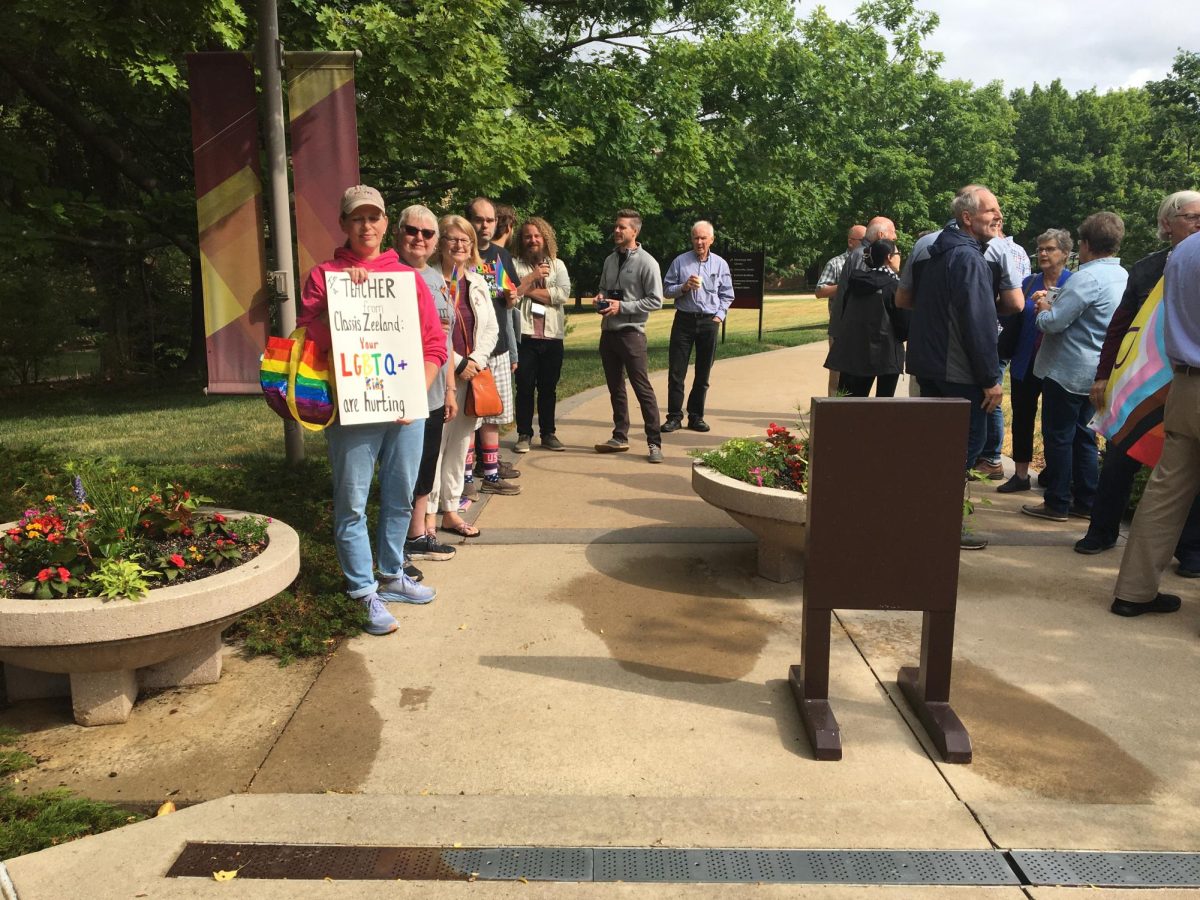

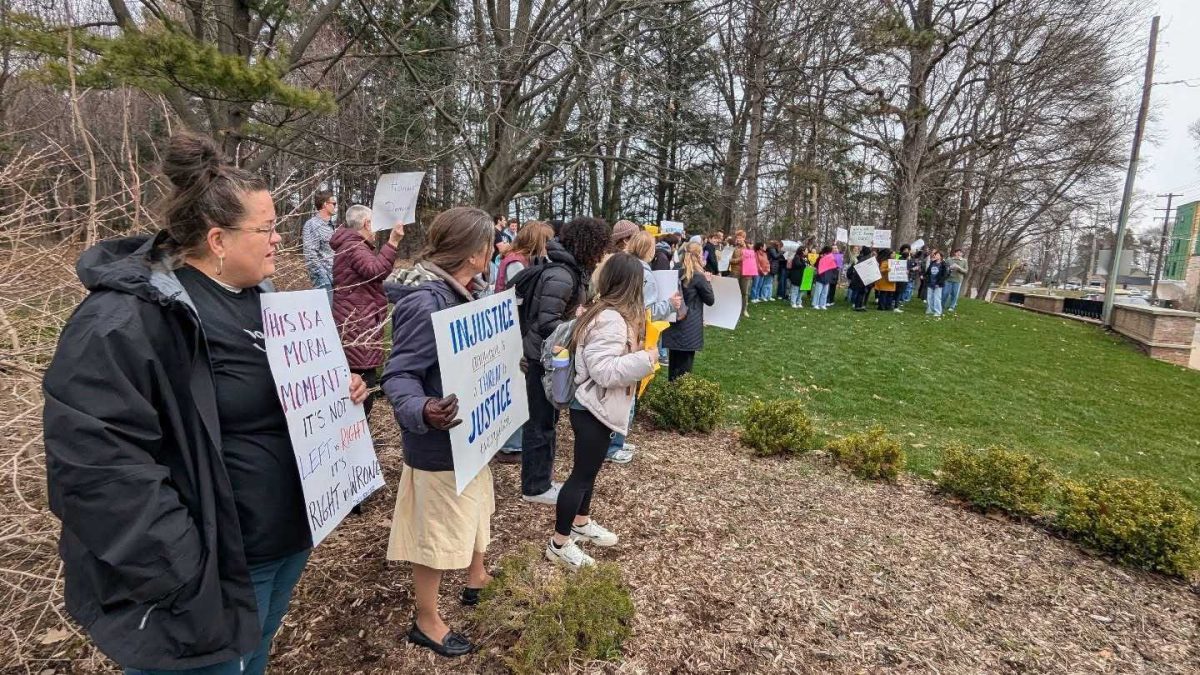
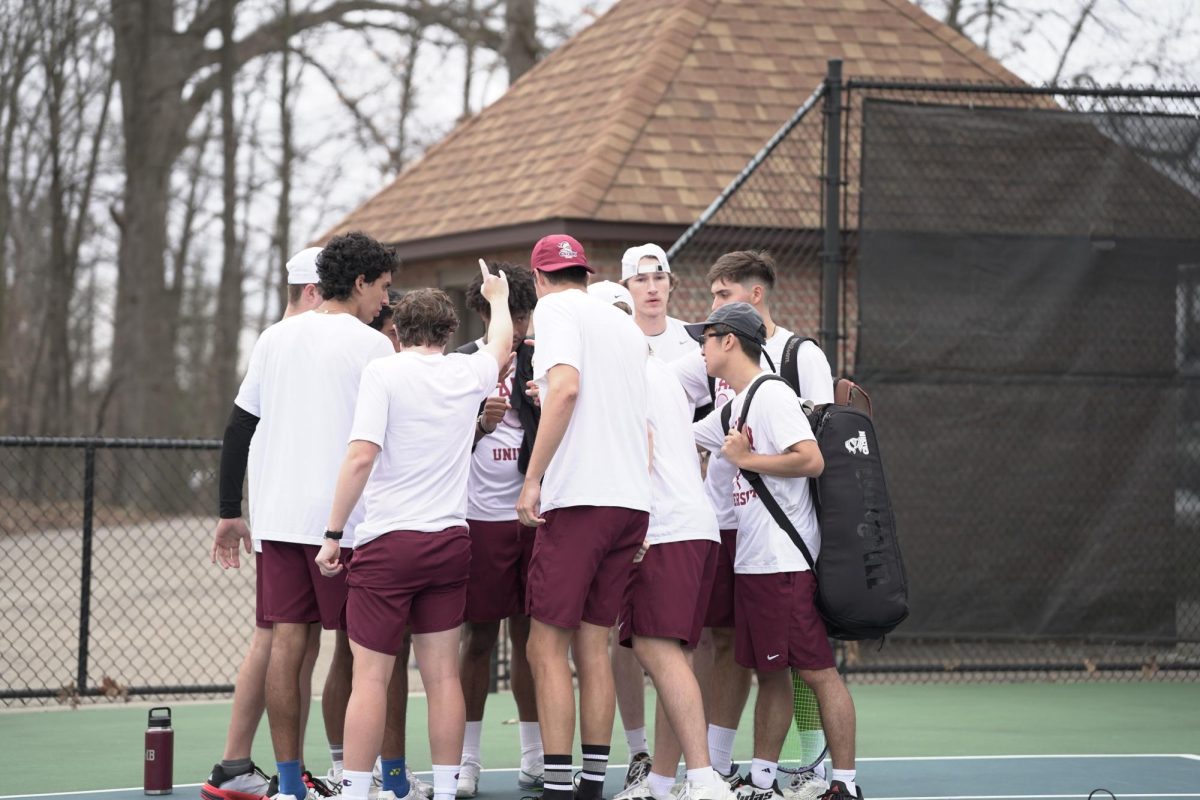
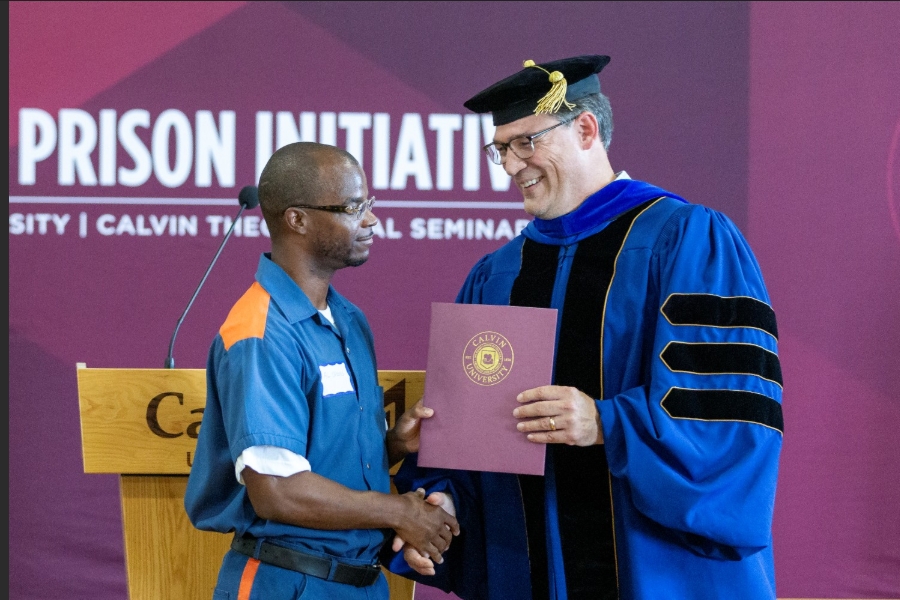
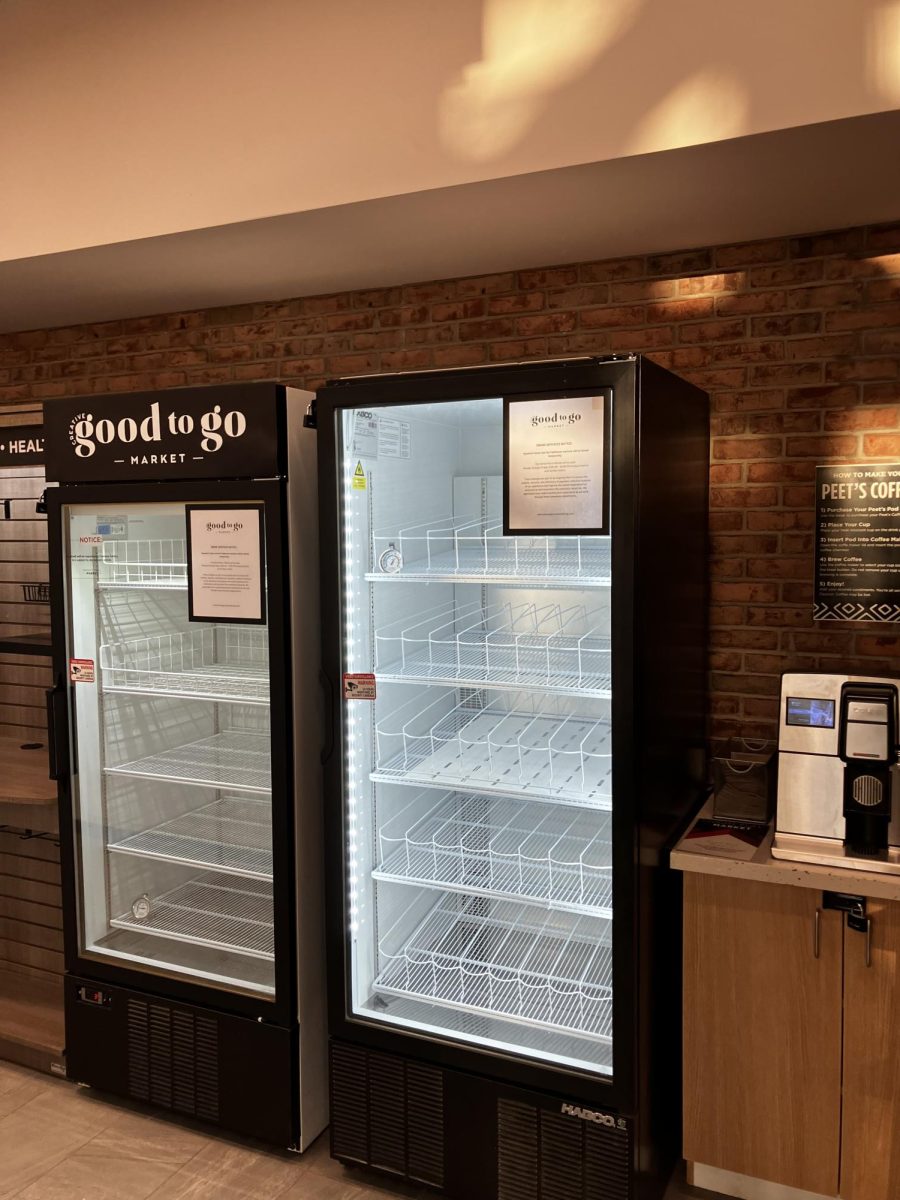
Allan E Hoekstra • Dec 12, 2023 at 3:06 pm
100% for political engagement for Calvin students. I would urge some caution on the “non-partisan” description; All In is a program of “Civic Nation”, an organization founded by Michelle Obama and other non-partisans. Make sure your eyes are open wide!
Doug Koopman • Dec 6, 2023 at 9:16 am
As a teacher of four Core 100 sections this fall, each with a special emphasis of engaging respectfully across viewpoint differences, I read with interest two Chimes articles from the December 4 print edition. Most of my interest was in the article on Calvin’s new partnership with the ALL IN, but I also noted the article about religious beliefs being challenged in Calvin religion courses. Together, they suggest additional steps that might improve the campus climate and better prepare our graduates to constructively engage a divided world.
Calvin has both great need and great opportunity to help its students navigate viewpoint differences far beyond theological differences, particularly across political and partisan differences. The need stems from the fact that the denomination that sponsors Calvin is divided on a key issue, with the majority position of the denomination apparently at odds with the majority position of faculty and students. The opportunity stems from the fact that most evidence, including past Chimes reporting on student partisanship and opinion, suggests the Calvin community is almost equally dispersed among conservative, moderate, and progressive positions. This dispersion, plus the Reformed tradition’s support for the structures of politics and government, provides a great opportunity to make Calvin an exemplary campus that names and embraces its political and partisan variety, while it models respectful dialogue that engages well across differences.
The ALL IN project, which focuses on increasing college student voting rates, seems like a good first step of a far longer journey. More people should vote, but the American political system suffers from far more systemic problems, chiefly around the inability of candidates and office holders to listen across difference and to focus their words and deeds on issues that can be resolved by political and governmental processes. We have too many performative and posturing politicians, too few well-informed and skilled resolvers of public problems. A university of Calvin’s stature should aim right at these issues to solve these deeper problems, potentially with additional partners beyond ALL IN. Fortunately, there already are a wide range of sources and experts available. Here are a few:
-the Bipartisan Policy Center’s Campus Free Expression Project
-the Foundation for Individual Rights & Expression’s (FIRE) Model Speech Policy
-the Constructive Dialogue Institute, particularly its Perspectives curriculum
-the Difficult Dialogues National Resource Center in Ann Arbor, Michigan
-the Civil Discourse Project at Duke University
These are just a few. There is a far longer list, and no doubt some promising matches for Calvin. The problems in the American political system are far deeper than low voting rates among college students. Calvin’s diverse campus constituency, and its rich Reformed understanding of politics, and even its present disputes, could all be useful building blocks of a model campus climate characterized by respectful engagement across difference–empowering students while they are here and equipping them to be agents of renewal in the political and governmental arenas.